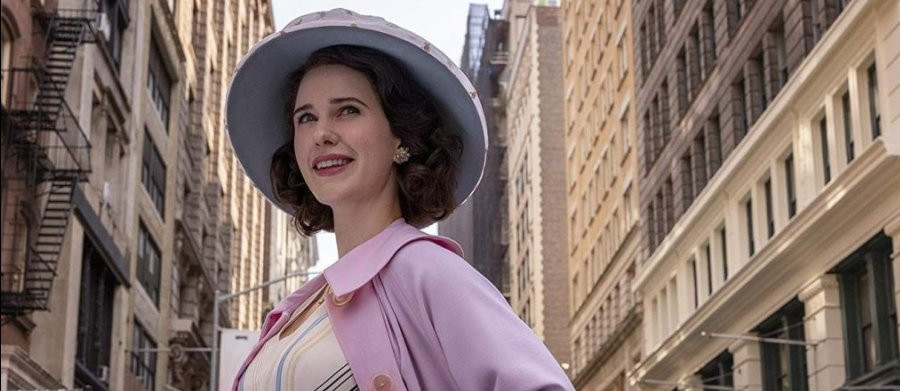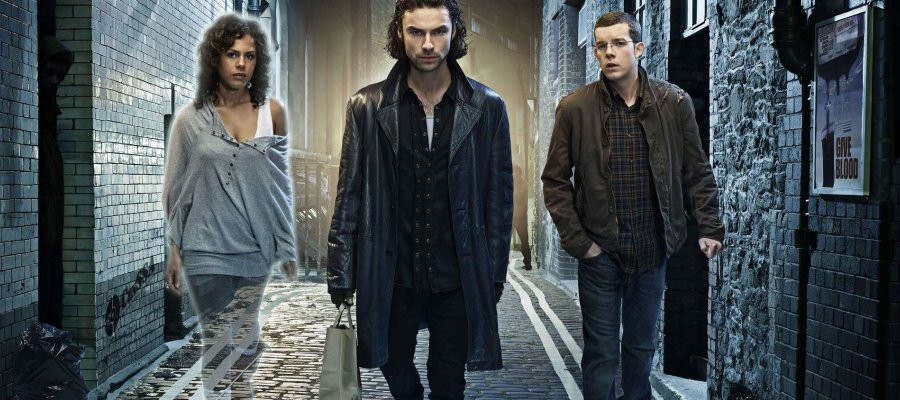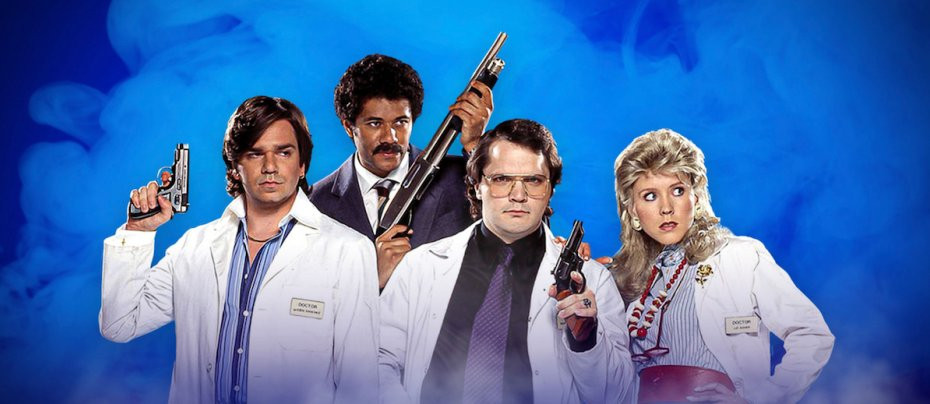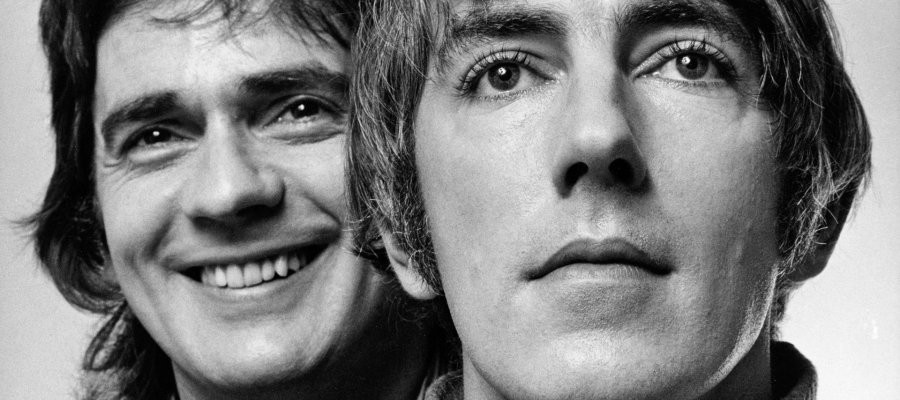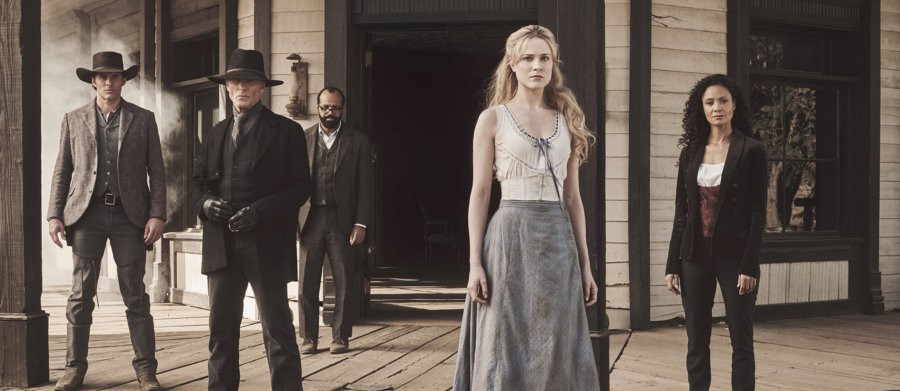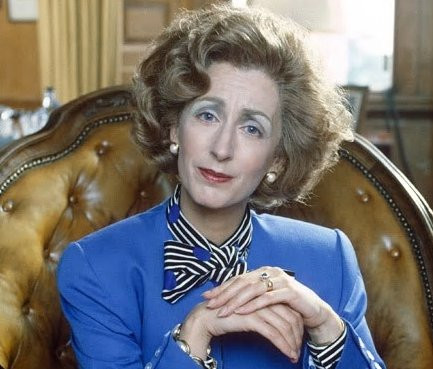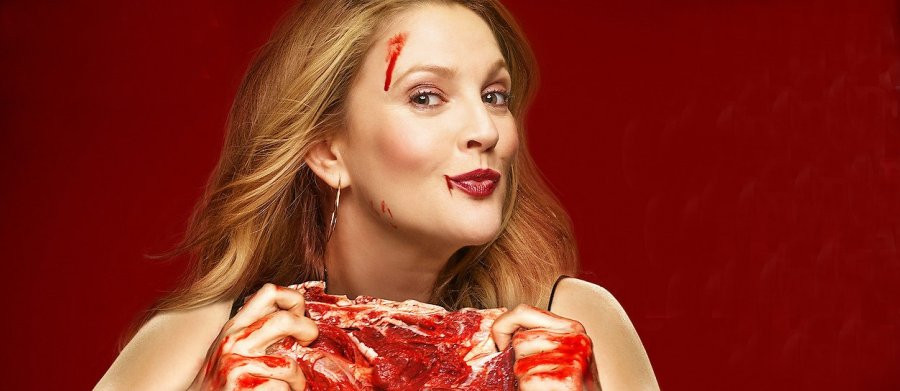
Santa Clarita Diet
2017 - United StatesReview: John Winterson Richards
The "zombie" genre is now so well established that the "zombie comedy," satirising the genre, is now a sub-genre in its own right. Of course, the films of George A Romero, which really started the modern zombie obsession, are themselves satirical. In 'Night of the Living Dead,' he contrasts the zombies with the media reaction and asks "Who are the real unthinking, unfeeling masses?" In 'Dawn of the Dead,' set largely in a shopping mall, it is the contrast with consumerism that prompts the same question.
The popularity of the genre among the masses suggests that few get the joke. Or is that popularity, in a time of growing fear of pandemic, a reflection of our deeper instinct to fight "infection"? Similar psychological explanations have been advanced to explain the popularity of the vampire genre.
Or perhaps it is a reflection of a much darker and deeper instinct. Human beings evolved over millions of years as violent animals. More recently, our violent nature has been suppressed by successive generations of religion, morality, civilisation, regulation, and good manners. Now we are supposed to be law abiding pacifists living in, or at least aspiring to, an Age of Reason, but our animal nature remains unchanged. We all know what happens with suppressed feelings.
Seeing the characters with whom we identify in 'The Walking Dead' slaughter "zombies," or perhaps doing the same "in person" through video games, therefore prompts a rather unpleasant thought: are we enjoying this because, deep, deep down, somewhere in our unconscious, we rather like the idea of killing our fellow human beings? We reject that idea at once. Our intellect and our conscience, what Freud called the "ego" and the "superego," are revolted by it. Yet the animal nature, Freud's "id," remains.
So in the fictional "zombie" we dehumanise our fellow human beings so that we can indulge our darkest suppressed fantasies of killing our neighbour rather than loving him, satisfying our deep animal nature without offending our intellect or conscience.

In this context, the Netflix comedy Santa Clarita Diet deserves credit for rehumansing the "zombie," and asking some difficult questions. What if the zombie was not at all unthinking or unfeeling? What if he - or, in this case, she - was a fairly normal person with the usual hopes and fears and dreams and moral qualms who just happened to catch a very dangerous disease that gave her an uncontrollable appetite and the capacity to infect others?
How would that change her life in practical terms? In particular, how would it in impact on her closest relationships? How would her family and friends view her? Would it be possible to carry on a normal life in organised society? There are potentially a lot of metaphors here. The "zombie" could be anyone with an unusual condition or unusual inclinations, or even unusual views, that might attract fear and, with fear, hatred.

It is hard to imagine anyone hating Drew Barrymore - which is the point. She, or, rather, her character, Sheila Hammond, suddenly finds herself dead, or, rather, undead. Apart from that, life goes on pretty much as usual.
She remains the same suburban wife, mother, and realtor she was before, at least externally - which is a relief. Internally, her animal urges become more dominant. This has its advantages: it makes her more assertive in business and does wonders for her sex life. If only she did not have that uncontrollable appetite - for a very particular type of meat.
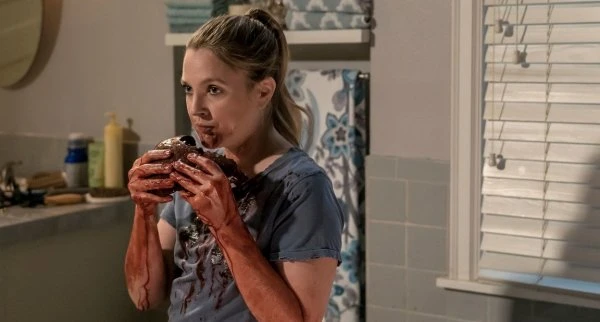
Only human flesh will do, and it has to fresh flesh, or at least frozen soon after, er, processing. The difficulties in acquiring this specialist product, and cleaning up afterwards, form the spine of the plot. Some of these scenes are quite graphic, which is at odds with the likeability and sense of good natured fun that the show cultivates in other respects.
Sheila and her extremely supportive husband Joel (Timothy Olyphant) appear to be grown up hippies - in Joel's case not that grown up. This means that, while they lack a clear sense of morality - which would end the series very quickly, since killing people for food is obviously wrong - they want to feel that they are behaving ethically. They are therefore discriminating in their choice of victims. Their debates on the subject seem to be a clever satire on the inability of many modern people to make difficult moral decisions through lack of the basic intellectual tools. At least, one hopes it is satire.

Either way, they try to kill only those they deem to be bad people. Indeed, their victims tend to be very disagreeable - happily, they come across a gang of Nazis who keep the freezer well stocked - but do all deserve to die, and die so horribly?
The question is brought into sharp relief by the case of Gary West (Nathan Fillion), a truly obnoxious fellow employee killed and partly eaten by Sheila - or rather partly killed and eaten by Sheila: since she was not yet fully aware of how the process worked at the time, she zombified him by mistake. He survived as a rotting head - in the third season, when the head was so rotten that it became unrecognisable, the voicing was taken over by Fillion's old Firefly pal Alan Tudyk. By this time, we had rather come to like him. So did he really deserve what he got?

If we rehumanise the "zombie," then surely we cannot deny the same humanity to the zombie's actual human victims, even the most unpleasant ones? Indeed, if we say that the "zombie" herself should not be defined by her unpleasant traits, surely the same also applies to her victims? These are, of course, questions a comedy is not expected to answer, but they do undermine the comedy a bit.
This is a pity because the comedy is first class, well written and well played. Barrymore and Olyphant make a delightful married couple, a little oddball perhaps, and a little uncertain of themselves and their roles in their marriage, but sincere in their desire to make their family work, even in difficult times.
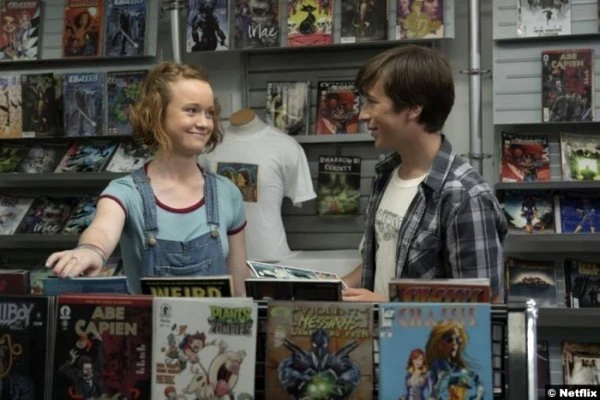
The rest of their family is their teenage daughter Abby (Liv Hewson), who is in turn the unrequited love object of Eric Bemis (Skyler Gisondo), the conveniently knowledgeable boy next door. While the "know it all kids" cliché has become a bit irritating, both are tolerable enough - and, in any case, it is not long before the two teenagers literally do know it all, despite the limited best efforts of Sheila and Joel to keep their secret.
If keeping Sheila fed is the Hammonds' first objective, keeping the secret is their second, and they prove to be very bad at it. Joel blabs the whole thing to Ron (Jonathan Slavin), a fellow patient when he is temporarily committed, on the assumption Ron will never get out: he does. Sheila zombifies Jean (Linda Lavin), a dying old woman, out of compassion so that she can live to attend her daughter's wedding on condition she does not kill anyone: she does.
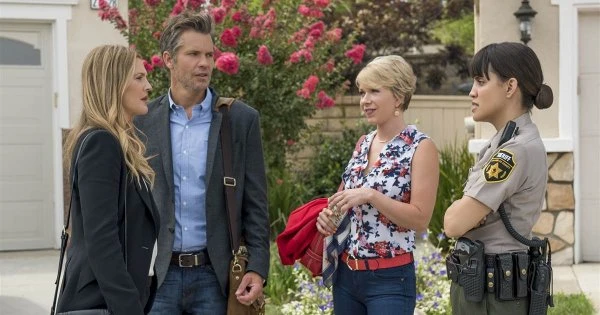
Bright Deputy Sheriff Anne Garcia (Natalie Morales) finally discovers the truth, but a strong character is then rather thrown away in a heavy handed satire on the supposed credulity of religious people when she is convinced, rather too easily, that Sheila is an instrument of God.
Then there is Ramona (Ramona Young), the shy employee of a pharmacy chain who always seems to have something helpful to say. It turns out that she has secrets of her own. As for Mr Ball Legs... well, he has to be seen rather than explained.

All the strange activity in Santa Clarita attracts the attention of the Knights of Serbia, an ancient secret order dedicated to fighting zombies. After the Hammonds persuade the local Knight, Tommy (Ethan Suplee), to retire, Joel comes up with a cunning plan to stop the Knights looking for his wife: he applies to take Tommy's place. The job application video he prepares to that end - referencing Olyphant's role in Justified - is one of the comic highlights of the show.
As the number of people in on the "secret" grows, they begin to form an informal support network for the Hammonds, and the way that some of them come together in a sort of 'X-Men' pastiche to save the day at the end of the third season suggested an interesting new direction for the show ...just as it was cancelled.
It was a premature end to one of the smartest comedies in years. Not only did it pull off the difficult combination of being both likeable and genuinely funny, it also showed great skill at building truly dramatic tension on the numerous occasions when it looked as if the Hammonds' whole fragile world was about to come crashing down around them.
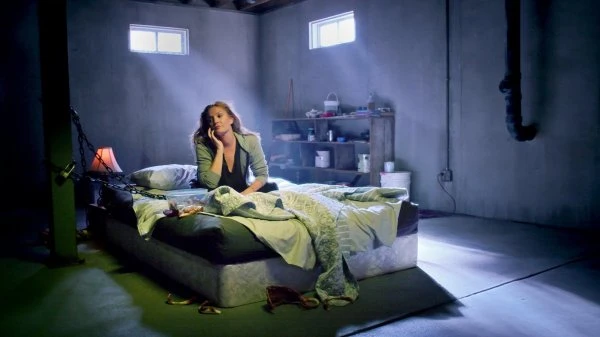
Dark humour is a difficult balancing act. Too much darkness and the humour is lost, and vice versa. Perhaps Santa Clarita Diet did not get that balance exactly right, and perhaps that is why it never built a bigger audience and a higher profile, one growing beyond the Netflix platform. It is therefore doubly sad that the cancellation came just as it seemed to be getting closer to the right balance.
Seen this show? How do you rate it?
Seen this show? How do you rate it?
Published on April 2nd, 2020. Written by John Winterson Richards for Television Heaven.


